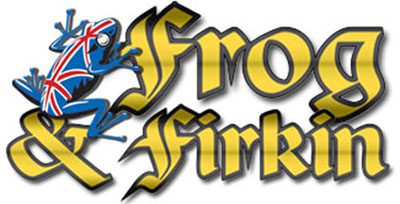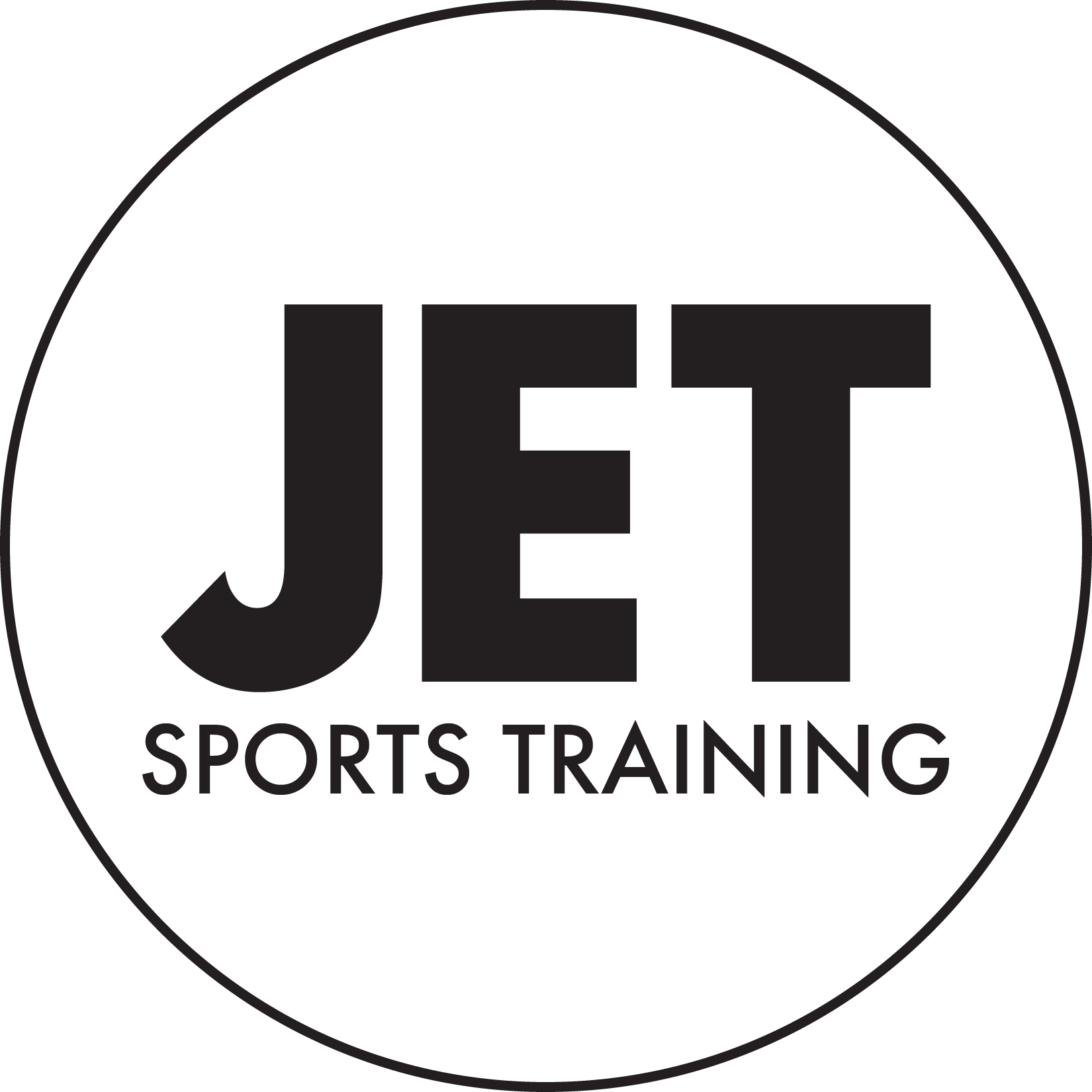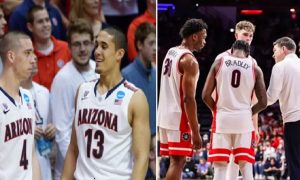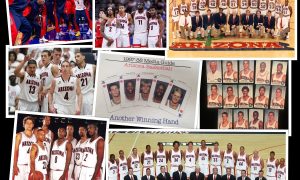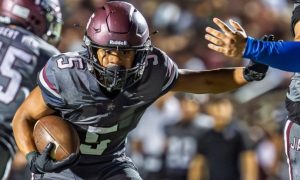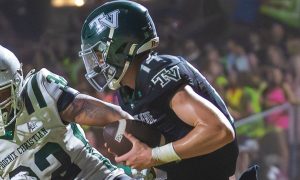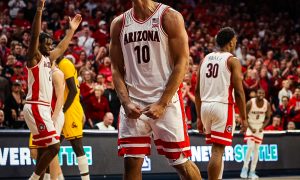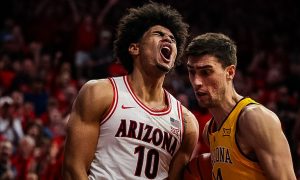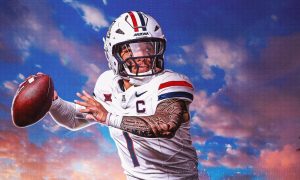|
|
|
ARIZONA PRODUCTIVITY RATING
[table “” not found /]
GLOSSARY:
G: Games played. S: Number of starts.
BP: Bench points. A player gets three points if he is first off the bench, two if second and one if third. Shows Sean Miller’s rotation.
WSU: Productivity points against Washington State
WMIN: Minutes played against Washington State
PP: Productivity Points (Points, assists, rebounds, steals, blocked shots, FGs made, FTs made added together and then subtracted by missed FGs, missed FTs, personal fouls and turnovers)
TMIN: Minutes played overall
PR: Productivity rating per minute played (Productivity points divided by minutes played)
NOTE: Player must average at least 10 minutes a game to be listed in primary rotation
|
[table “” not found /] |
This was a verbal shove by Sean Miller, the way a head coach should light a flame under his players. “I could have come in here and given you (reporters) all the ‘Hey, we’re great,’or ‘We played some great basketball.’” an incensed Miller was quoted as saying by TucsonCitizen.com writer Anthony Gimino after the UA’s 73-56 win over Washington State on Saturday. “But with what we’re trying to accomplish moving forward, we’re in a real quandary. We do not play hard on defense.” Imagine if Arizona had lost or was not 23-4 overall and tied for Oregon with an 11-4 record atop the Pac-12? Three games remain in the regular season and Arizona has put itself in position for a regular-season Pac-12 title, which would be the second in Miller’s four seasons with the Wildcats. Judging from his frank comments Saturday, Miller knows his defense will fuel the UA that far and potentially farther in the NCAA tournament. |
That defense right now is running on empty in Miller’s estimation.
“On defense, there is another level that is required, and we’re not there,” Miller was quoted as saying by Gimino. “We pick and choose how hard we play on defense.”
The Cougars made 52.2 percent of their field goals in the second half. WSU starting point guard Royce Woolridge never got on track, finishing with six points in 35 minutes after scoring a career-high 36 in 41 minutes last week against Oregon. The Cougars, however, made 12 of 24 field-goal attempts within the three-point line and they went to the free-throw line 10 more times than Arizona.
Arizona is fortunate Washington State made only 14 of its 28 free-throw attempts. The UA converted 12 of its 18 attempts.
The Cougars also outscored Arizona 22-18 in the paint.
Two players were especially productive for Arizona: Kevin Parrom and Kaleb Tarczewski. One other played to form: Mark Lyons. The others were subpar, especially UA senior Solomon Hill, who posted only five productivity points (see glossary for definition) in 29 minutes.
Parrom and Tarczewski had personal season-high productivity totals. Parrom had 32 productivity points in 33 minutes, while Tarczewski posted 22 productivity points in 23 minutes. In the week’s sweep of Washington and Washington State, Tarczewski played the most consistent with 40 productivity points in 48 minutes.
“It’s tough being a freshman but as the games go on I gain confidence,” said Tarczewski, who scored a career-high 12 points and had six rebounds. “At the beginning of the season I was struggling to find my way but the team’s been doing a great job of finding me and getting me the ball. That’s been helping me with my confidence and I’m starting to find myself.”
Tarczewski recorded his first assist in Pac-12 play — he had two of them — with only one turnover.
Parrom’s productivity was his best since he posted 28 productivity points in 34 minutes against Colorado in the Pac-12 opener on Jan. 3.
“I’ve been in a slump the past few games but coach told me to keep playing,” said Parrom, who had 19 points on 6 of 7 shooting from the field, 5 of 6 from three-point range. “There are a few things we can do better as a team but we have to keep practicing to get better on defense.
“We have a lot of young guys that play defense but we have to keep getting better defensively to get to where we want to be.”
The Wildcats tallied only five steals and forced Washington State into only 12 turnovers. They averaged 7.1 steals and forced opponents into 14.2 turnovers heading into the game.
Arizona plays its next three games against a USC team that is playing with reckless abandon, a UCLA team that subdued the Wildcats in McKale Center last month and an ASU team that can challenge an opponent on any given day.
Miller wants those teams to think of Arizona as a team that can shut them down and play like a top 10 team in the nation.
“We have a three game season,” Miller said. “We continue to talk about competing for the Pac-12 championship title. Sometimes you have to have good fortune to actually win it.
“While we’re on the road we have to defend and play well. … We have to be able to leave this game, move forward, and play better.”
One positive for Arizona is it out-rebounded its third straight opponent and limited Washington State to 23 rebounds overall.
Defensive Rebounding Percentage (DRB%): Determined by dividing Arizona’s defensive rebounds (23 against Washington State) by the opposition’s offensive rebounds (Washington State had only seven) added to Arizona’s defensive rebounds (23) — 23/(7 + 30) = 76.7 percent.
Offensive Rebounding Percentage (ORB%): Determined by taking Arizona’s offensive rebound total (only seven) divided by that total (seven) and the defensive rebounds of the opponent (16 for Washington State) — 7/(7 + 16) = 30.4 percent.
Ideal marks are 72 percent DRB% and 38 percent ORB%.
|
DEFENSIVE/OFFENSIVE REBOUNDING% [table “” not found /] |
Site publisher, writer and editor Javier Morales is a former Arizona Press Club award winner
[rps-paypal]
|
|









